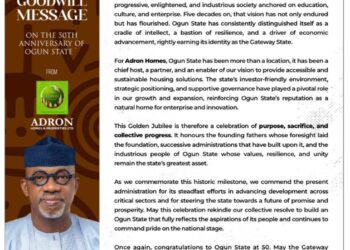The World Bank is set to approve two major loans totaling $750 million for Nigeria on Tuesday, September 30, 2025. According to details published on the Bank’s website, the funds will strengthen health security and expand climate-resilient digital infrastructure, especially in underserved areas.
Breakdown of the Financing Package
The package includes:
$500m for the Building Resilient Digital Infrastructure for Growth in Nigeria (BRIDGE) project.
$250m under the Health Security Programme in Western and Central Africa, Nigeria – Phase II.
The World Bank has listed both initiatives in its active pipeline, and negotiations are now at advanced stages ahead of board approval.
Project BRIDGE: Expanding Broadband Access
The BRIDGE project, led by the Ministry of Communications, Innovation, and Digital Economy, seeks to expand broadband to unserved and underserved communities. With a total cost of $1.6bn, the World Bank will finance $500m through concessional credit from the International Development Association (IDA). The balance will come from private investors.
The project will deliver climate-resilient broadband infrastructure, boost internet penetration, and support Nigeria’s ambition to become a digitally inclusive economy.
Communications Minister, Dr Bosun Tijani, revealed in August that Nigeria is building one of the largest digital backbones in the developing world. Project BRIDGE, a $2bn fibre-optic expansion, will grow the network from 35,000 to over 125,000 kilometers.
The rollout includes:
Seven major fibre rings linking all six geopolitical zones with Lagos.
37 city-level loops and 77 regional networks.
Multiple edge data centres.
Implementation will be managed through a Special Purpose Vehicle, with the Federal Government holding 51% equity and private investors 49%. In addition to the World Bank, partners include the African Development Bank ($200m), the European Investment Bank, Islamic Development Bank, and private sector financiers.
Health Security Loan: Strengthening Emergency Preparedness
The second loan, worth $250m, will fund Phase II of the Health Security Programme, part of a regional effort across West and Central Africa.
The Nigeria Centre for Disease Control and Prevention (NCDC), under the Federal Ministry of Finance, will coordinate Nigeria’s share. The programme will enhance the country’s ability to detect, prevent, and respond to health emergencies, drawing lessons from COVID-19 and recent outbreaks.
Rising World Bank Funding to Nigeria
Between June 2023 and August 2025, the World Bank approved $8.4bn in fresh loans for Nigeria across 15 projects in energy, education, governance, rural development, and health. This includes $6.5bn in concessional IDA loans and $1.95bn from the IBRD.
Experts Express Caution on Rising Debt
Economists are divided on the implications of the loans.
Adewale Abimbola, a Lagos-based economist, argued that borrowing from multilateral institutions is beneficial when tied to viable, revenue-generating projects.
Dr Aliyu Ilias, CEO of CSA Advisory, warned that Nigeria’s debt burden is climbing despite improved revenues from subsidy removal and higher tax collection.
He noted that Nigeria’s debt stock has surged from ₦87tn in 2023 to ₦149tn in 2025, with projections nearing ₦180tn. Rising debt service costs, he warned, could crowd out funds for education, jobs, and infrastructure.
Nigeria’s Growing Dependence on the World Bank
Data from the Debt Management Office shows Nigeria owes the World Bank $18.23bn as of March 31, 2025, up from $17.81bn in December 2024. This accounts for nearly 40% of Nigeria’s external debt and more than 81% of its multilateral debt, underlining the institution’s central role in Nigeria’s financing strategy.












